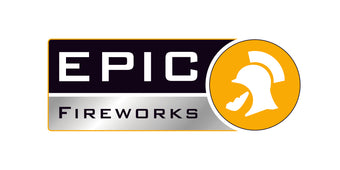Origin of Fireworks
A firework can be defined as a combustible and/or explosive device for producing a striking display of light and/or a loud noise.
Fireworks are used all around the world every day in celebrations ranging from small private birthday parties to state-sponsored events. The quality and performance of fireworks have changed a lot since their accidental discovery, and now take on many shapes, forms, and an almost infinite range of colours. Here is a brief outline of the progression of fireworks over the centuries.
It is still unclear exactly when fireworks were first invented. Some think that fireworks first originated in China around 2,000 years ago. The most popular legend has it that fireworks were discovered by accident when a Chinese cook working in a field kitchen happened to mix charcoal, sulphur, and saltpeter (which were all common kitchen items at the time). The mixture burned and when compressed in an enclosed space, exploded.
However, another school of thought places the discovery at some stage in the 9th century during the Song dynasty (960-1279), although this could easily be confusion over the discovery of gunpowder by the cook in the field kitchen and the invention of the firecracker.
Most often credited with the invention of firecrackers - about 1000 years ago - is a monk called Li Tian. He was from the city of Liuyang in Hunan Province, China. This area is still to this day the largest producer of fireworks anywhere in the world. During the Song Dynasty, a temple was built to worship Li Tian and the people of China still celebrate the invention of the firecracker every April 18th by offering sacrifices to Li Tian and setting off fireworks.
In China, firecrackers were thought to have the power to ward off evil spirits and demons that are scared by the loud bangs. Firecrackers are still very much in use today at most events such as births, weddings, funerals, and birthdays. Chinese New Year is a very popular event that is synonymous with the use of firecrackers, which are said to bring in the New Year free of evil spirits.
It is usually Marco Polo who is credited with introducing gunpowder to Europe in the 13th century, although many historians prefer the theory that the Crusaders brought the black powder to Europe as they returned from their wars in the Middle East. During the Renaissance, two distinctly separate European schools of pyrotechnic thought emerged, one in Italy and the other at Nurnberg in Germany. The Italians focused on elaborate effects, stunning their audiences with dazzling displays, while the German school stressed scientific advancement. Both Italy and Germany added significantly to the further development of fireworks, and by the mid-17th century, fireworks were used as entertainment on an unprecedented scale in Europe, proving popular at resorts and public gardens and gatherings.
The English were also captivated with fireworks, in 1487 fireworks were used at the coronation of Elizabeth of York (bride of Henry VII) - where a “dragon spew out fire into the Thames”. Anne Boleyn also witnessed fireworks at her coronation where the fire masters were described as 'wild men casting fire and making a hideous noise'.
The popularity of fireworks thrived in Great Britain during the sovereignty of Queen Elizabeth I. William Shakespeare mentions fireworks in several of his plays, and fireworks were so much enjoyed by the Queen herself that she created the position of "Fire Master of England" and King James II was so pleased with the fireworks display at his coronation, that he actually knighted his Fire Master.
Fireworks have certainly come a long way since their invention, and we believe that there is a lot more to discover and a lot more new and exciting advancements awaiting us in the future. So what’s next in the world of fireworks? Watch this space!
More from the learning centre at Epic Fireworks
